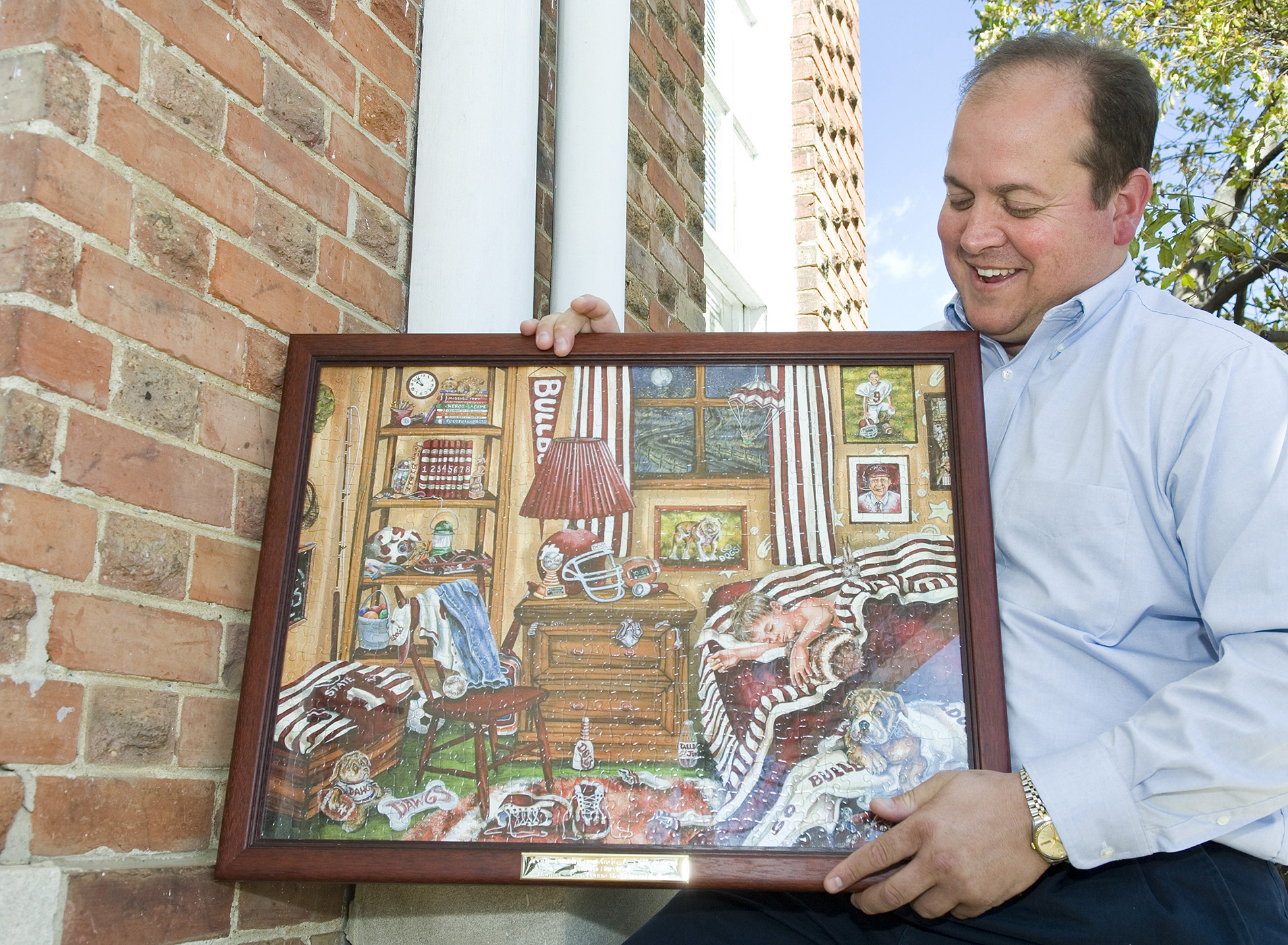Contact: Phil Hearn

STARKVILLE, Miss.--Putting the pieces of a puzzle together was--especially for some young refugees from last summer's devastating hurricanes--a not-so-puzzling, therapeutic Odyssey toward putting the pieces of their lives back together.
It also was a professionally and emotionally satisfying experience for Mississippi State doctoral student Tommy Fonseca of Houma, La., who put his counseling skills to good use in New Orleans and his hometown following the carnage of storms Katrina and Rita.
Head guidance counselor at Holy Cross High School located in the heart of New Orleans' flood-swept 9th Ward, Fonseca evacuated his Metairie apartment just one day ahead of Katrina's Aug. 29 onslaught and headed south.
South, you say? You got it.
He went to Houma, about a half-hour drive southwest of the Crescent City, to help his mom, Marie, and other family members and neighbors board-up windows, move furniture and generally batten down the hatches just ahead of Katrina's growing threat.
"Everyone pitches in down there," he noted. "That's part of our culture."
Ironically, Fonseca's ongoing doctoral dissertation under the direction of Mary Hermann, an assistant professor of counselor education at the Starkville university, focuses on assessing the ability of school counselors to effectively manage crisis situations.
"I told him not to mess up," joked Hermann, herself a New Orleans native.
Although Katrina only skirted Houma, Fonseca's ground-floor apartment in Metairie was swamped by floodwaters pouring through the breached levees of Lake Pontchartrain. So, while he was relatively safe in Houma, he lost most of his personal belongings to the sewage-laced waters that inundated large portions of the Big Easy.
Returning to New Orleans just two days after the hurricane, the 35-year-old Fonseca said he was shocked at the chaos and devastation he found throughout the city, and later was sickened at the plight of his own wrecked apartment.
"I had dead fish on my patio," he lamented. "I was able to salvage very little."
The Holy Cross middle and high school students he mentored and their families in that St. Bernard Parish neighborhood were among the hardest-hit victims of the flooding. It would be weeks before Fonseca would be reunited with many of his students at a satellite school established in Baton Rouge.
"Very few of those kids were unaffected," he said. "Most of them lost everything. I even had some kids who lost their parents."
After spending a couple of days helping police, firemen and other emergency responders in rescue and crisis intervention work in New Orleans, Fonseca returned to Houma. There, he pitched in to help two mental health professionals who had been consoling some 1,300 evacuee families at a local Red Cross shelter.
"By the time Katrina had blown through, the shelter was down to about 800 people," Fonseca said. "When Hurricane Rita hit (about three weeks later), the shelter filled up again to capacity. Rita flooded the bayous, up to about 9 or 10 feet of water."
Tommy's mother Marie said she "made out pretty good" in Katrina and her home suffered only minor damage in Rita. "I didn't lose any of my furniture," she said.
With his family safe, Fonseca said he "logged 200 hours" working with young storm refugees. His clients ranged in age from 7 to 13 at the Houma-Terrebonne Parish Civic Center shelter in the aftermath of Katrina, and during and after the subsequent onslaught of Rita, he added.
Fonseca's fellow students and professors back in MSU's counselor education department also were busy collecting a truckload of donated supplies, which they hauled to Houma to help Tommy replace some of the personal goods he had lost in the storm.
"What I had left over, I just donated to the Red Cross shelter," he said.
Participating in the 400-plus-mile relief mission for their friend were fellow MSU graduate students Patricia Thornton of Durant, Donna Barefoot of Petal, Marie Papini of Macomb, Ill., and Tiffany Chandler of Spokane, Wash.
During this time, Tommy, ever the counselor, was looking for a project that might serve as a focal point of activity for the youngsters at the shelter, something that would take their minds off their disrupted lives. He solved the puzzle with a puzzle.
"One of the things you do in therapy is look for some kind of consistency, particularly in working with children who have experienced so much inconsistency," said Fonseca, who is nearing completion of the terminal degree in counselor education.
So, he brought in the components of a large Mississippi State picture puzzle--about 500 pieces in all--that he earlier had purchased at the campus bookstore. Under his supervision, the kids worked daily in 10-, 20- or 30-minute sessions to put the puzzle together over a period of about two weeks. Completing it became a big deal.
"It was an MSU puzzle in the middle of LSU country," laughed Fonseca, who holds a bachelor's degree in religious studies from Loyola University of New Orleans, and master's degrees in higher education administration and counselor education from the University of New Orleans.
The approximately 18-by-30-inch picture depicts a youngster fast asleep in a child's bedroom filled with a maroon-and-white assortment of Bulldog pennants, pictures, toys, a football helmet and other MSU symbols. Fonseca promised the kids at the shelter he would have it framed, and he did.
According to Hermann, the picture now hangs in the lobby of Mississippi State's department of counselor education, educational psychology and special education. The department is a part of the College of Education.
It bears this inscription: "Your kindness made a difference--from the Katrina survivors."
NEWS EDITORS/DIRECTORS: For more information, contact Fonseca at (985) 856-6245 or thomasfonseca@hotmail.com, or Dr. Herman at (662) 325-7919 or mherman@colled.msstate.edu.